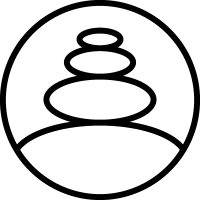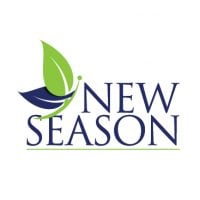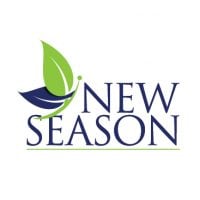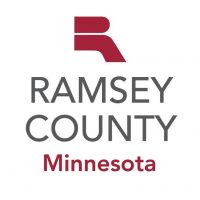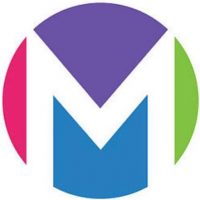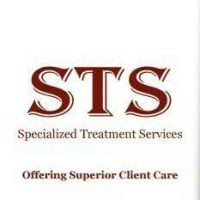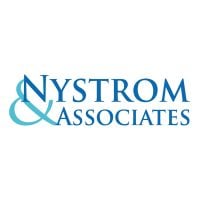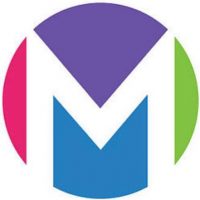University of Minnesota Medical Center - Dual
Drug Rehab Center in Saint Paul, Minnesota
The University of Minnesota Medical Center -Dual in Saint Paul, Minnesota offers comprehensive addiction treatment services including outpatient services, intensive outpatient programs, medication-assisted treatment, individual and group counseling, family support services, and evidence-based therapies.
About This Minnesota Facility
The University of Minnesota Medical Center - Dual in Saint Paul, Minnesota, is a comprehensive and well-regarded treatment center that provides a variety of services to individuals with substance abuse and addiction issues. Programs offered at the facility include outpatient services, intensive outpatient programs, brief interventions, medication-assisted treatment, individual and group counseling, and educational programs. In addition to helping clients battle addiction, the facility also provides family support services and psychiatric services to assist with mental health issues.
University of Minnesota Medical Center - Dual uses evidence-based therapies such as cognitive-behavioral therapy and trauma-based therapies to help individuals explore the underlying causes of their addiction and learn positive coping strategies for managing their cravings and emotions. The facility also offers motivational enhancement therapy to help individuals build a strong internal motivation to maintain their sobriety. Additionally, clients have access to 12-step support groups to increase their social support and to learn ways to navigate everyday life without relying on drugs or alcohol.
University of Minnesota Medical Center - Dual is accredited by The Joint Commission, and its addiction treatment programs are State-licensed and CARF-accredited. The facility also offers a wide range of Continuing Medical Education courses that are approved by the American Society of Addiction Medicine, allowing medical professionals to stay up-to-date on the latest practices in addiction treatment. Additionally, the facility has been presented with the Minnesota Governor’s Award for Outstanding Excellence in Mental Health Services.
Genders
Ages
Modality
Additional
Conditions and Issues Treated
Dual Diagnosis refers to someone who is both dealing with addiction and another mental health issue.
There are different kinds of Dual Diagnosis: A person who simultaneously experiences both a mental illness and an addiction disorder. Or, a person who experiences one or more coexisting (simultaneous) mental health conditions in addition to a primary substance use disorder.
Some conditions that commonly co-occur with addiction include:
- Personality Disorders (Borderline, Narcissistic)
- Mood Disorders (Bipolar Disorder, Depression, Anxiety Disorder)
- PTSD (Post Traumatic Stress Disorder), OCD (Obsessive Compulsive Disorder), ADHD (Attention Deficit Hyperactivity Disorder)
- Schizophrenia, Psychosis, Hallucinations, Delusions
Levels of Care Offered at University of Minnesota Medical Center - Dual
This center offers a variety of custom treatment tailored to individual recovery. Currently available are Dual-Diagnosis, Outpatient, with additional therapies available as listed below.
Outpatient treatment programs provide drug and alcohol addiction treatment through individual sessions with a counselor, group therapy, 12-step meetings, and other activities to help individuals gain sober living skills. Most programs are designed for those individuals who have completed a medically supervised detoxification program and provide opportunities for clients to begin the process of early recovery.
Outpatient programs also offer a level of medical support as needed and psychological backing through therapy. Clients are encouraged to live at home, though there may be some flexibility regarding this requirement based on the circumstances and needs of each patient.
Outpatient treatment is perhaps the most common type of dual diagnosis program available. It does not pose a significant financial burden on patients. However, it is essential to note that outpatient treatment does not provide the support and supervision given in residential programs. Some addicts may need this level of support to maintain their sobriety.
Therapies & Programs
Therapy sessions focused on the individual addict can provide much-needed guidance as they work toward overcoming their addiction. These types of sessions typically involve guidance from a therapist, who will help addicts identify and process their feelings and cravings.
During these sessions, addicts may develop plans for coping with the triggers that typically lead to relapse and learn how to avoid those triggers during their recovery process.
If you are looking for drug recovery, couples therapy can be a great option. This type of therapy can help rebuild trust and joy in relationships that may have been damaged by addiction. It can also help reduce the dysfunctional behavior in a relationship that may trigger addiction. A patient’s partner will be involved in the process. They can also benefit from therapy, especially if they are trying to live with an addict.
The main goal of family therapy for drug addiction is to create an environment where communication can occur without judgment, hostility, or blame that often occurs within a family.
Family therapy is a type of group problem-solving that aims to improve communication and relationships between the patient, their family, and sometimes friends. The therapist is with the family as they learn to communicate with each other differently, especially with the addict when s/he is using.
The family can learn to reduce their enabling behavior or rally together and support each other during tough times. The patient also learns how to deal with their addiction and maintain sobriety while interacting with the family.
Different types of addiction treatment services are available. Within this article, group therapy is of interest due to its high success rate compared to individual therapy. Group therapy settings are beneficial because they allow recovering addicts to build a strong support network.
Benefits of group therapy are:
- Reduces feelings of isolation
- Immediate access to social support in the form of fellow addicts in recovery
- Lowers risk of relapse
- Increases rate of sobriety
- Builds coping skills that can be applied to everyday life
Dialectical Behavior Therapy is a cognitive-behavioral therapy that helps addicts balance their thoughts and emotions to change their behavior. It was designed for those vulnerable to self-harm and suicidal thoughts and aims to help patients understand the connection between their feelings, emotions, and behaviors. It is effective for those whose addictions and behaviors stem from severe mental health issues.
Cognitive Behavioral Therapy (CBT) is used by drug treatment centers to help addicts comprehend the causes of their substance abuse and the consequences that follow. Through CBT, clients learn to recognize and avoid high-risk situations and cope with challenging situations when they arise.
CBT treatment often includes a combination of individual therapy, group therapy, lectures, and other activities. The treatment’s goal is to help addicts gain self-control and maintain abstinence from drugs and alcohol over the long term so that an addict can get sober and lead a more productive life.
CBT is particularly effective in helping people overcome their drug problems, especially people whose drug abuse is motivated by self-defeating beliefs and emotions.
Payment Options Accepted
For specific insurance or payment methods please contact us.
Is your insurance accepted?
Ask an expert, call (888) 674-0062
Additional Details
Specifics, location, and helpful extra information.
Saint Paul, Minnesota 55109 Phone Number(612) 273-6168 Meta DetailsUpdated November 25, 2023
Staff Verified
Patient Reviews
There are no reviews yet. Be the first one to write one.
Saint Paul, Minnesota Addiction Information
Minnesota is fighting an opioid epidemic that is leaving hundreds of its residents dead each year. Both prescription opioids and illicit opioids are widely abused in the Land of 10,000 Lakes. Heroin continues to be one of the most commonly abused drugs in the state, if not the most common illicit drug. Over 10% of all treatment admissions in Minnesota list heroin as their drug of choice.
Methamphetamine use has led to increased crime in Saint Paul, MN. There were 1,497 drug-related crimes in Saint Paul in 2017. This number represents a 9% increase from the previous year. The community has been hit hard by the opioid epidemic as well. The greatest way to locate the finest rehabilitation facility in Saint Paul, Minnesota, is to inquire about it by talking with your friends, family, and coworkers.
Treatment in Nearby Cities
- Grand Marais, MN (228.5 mi.)
- Princeton, MN (47.4 mi.)
- Crookston, MN (256.6 mi.)
- La Crescent, MN (117.9 mi.)
- Minneapolis, MN (12.4 mi.)
Centers near University of Minnesota Medical Center - Dual
The facility name, logo and brand are the property and registered trademarks of University of Minnesota Medical Center - Dual, and are being used for identification and informational purposes only. Use of these names, logos and brands shall not imply endorsement. RehabNow.org is not affiliated with or sponsored by University of Minnesota Medical Center - Dual.

